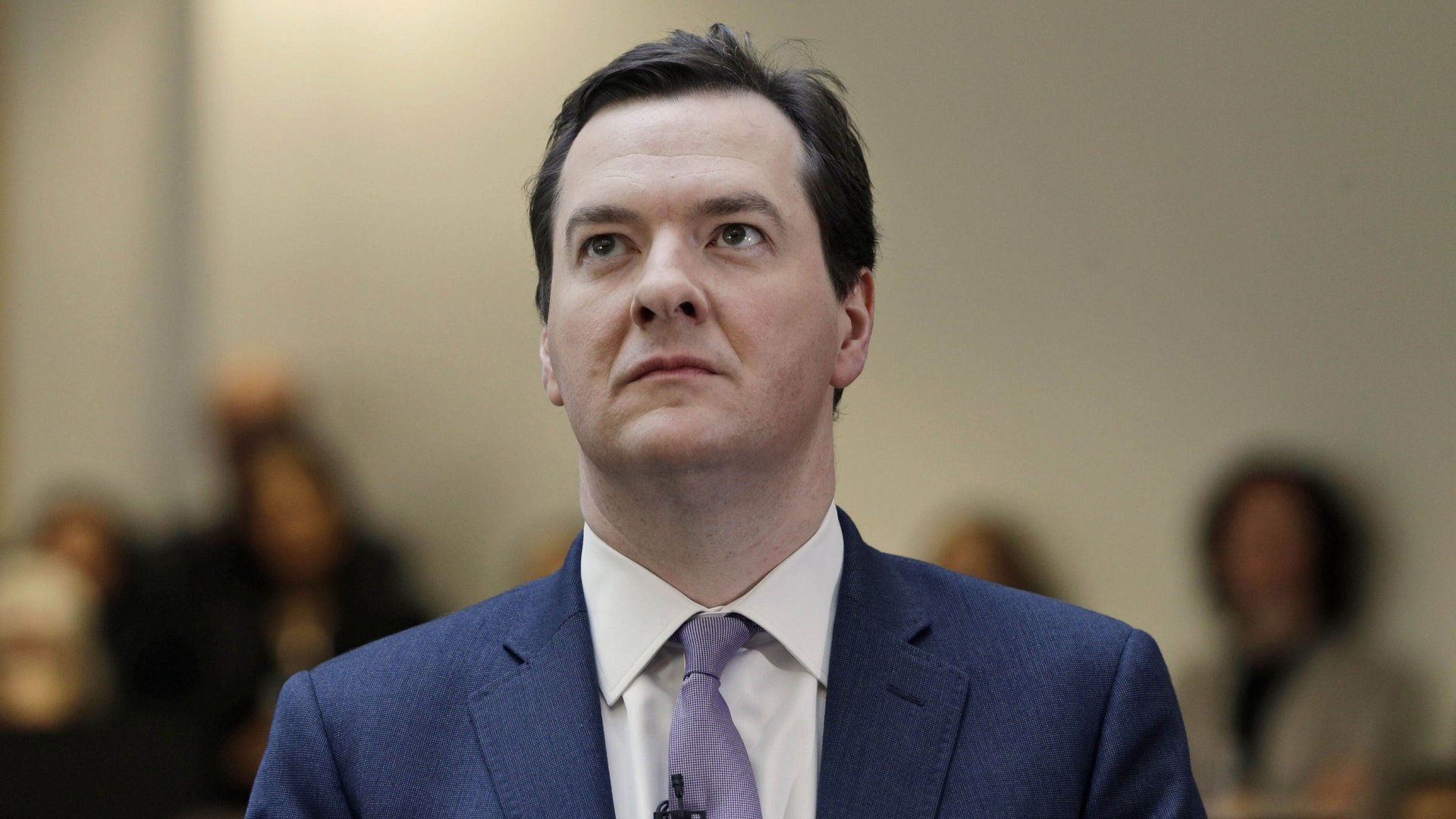You can blame Reinhart and Rogoff for Fitch’s UK downgrade, too
Our first benchmark is to cut the deficit more quickly to safeguard Britain’s credit rating. I know that we are taking a political gamble to set this up as a measure of success. Protecting the credit rating will not be easy.


Our first benchmark is to cut the deficit more quickly to safeguard Britain’s credit rating. I know that we are taking a political gamble to set this up as a measure of success. Protecting the credit rating will not be easy.
– George Osborne, February 2, 2010
Last week, it looked like critics of chancellor George Osborne were given a large boon as Fitch became the second ratings agency to downgrade the UK due to the country’s poor economic performance. The agency lowered the country a notch from its highest AAA rating to AA+ stating:
The downgrade of the UK’s sovereign ratings primarily reflects a weaker economic and fiscal outlook and hence the upward revision to Fitch’s medium-term projections for UK budget deficits and government debt.
Given Britain’s poor economic performance, this should perhaps have come as no surprise. However, as Osborne’s warning suggests, the rating’s political import could weigh far heavier than any economic impact it may have.
Despite the temptations this situation presents to opponents of the Coalition’s economic policy, I would urge caution in tacitly accepting Fitch’s analysis of the UK’s economic challenges. Before leaping onto that bandwagon, look in detail at what the ratings agency is actually saying.
In its report the agency cites the “failure to stabilise debt below 100% of GDP and place it on a firm downward path towards 90% of GDP over the medium term would likely trigger a rating downgrade” as a key motivating factor behind the downgrade. Now, that 90% debt to GDP figure may sound very familiar to some of you. It should. It was the point above which US academics Carmen Reinhart and Kenneth Rogoff suggested a country’s economic growth would slow in their 2010 paper “Growth in a Time of Debt”—a paper widely cited by supporters of austerity policies in the US, the UK and the eurozone.
Unfortunately for those who had cited their research, it was also the paper that a young graduate student at the University of Massachusetts found significant flaws in when he attempted to replicate their results. His paper, co-authored with two of his university professors, has sent ripples through the economics profession as it found that the correlation between high debt and low growth was much weaker than had been suggested.
Moreover econometric analysis by Arindrajit Dube showed that rather than high debt/GDP causing low growth, the data suggest the causality may in fact be the reverse. That is, the paper that has been used to justify a policy of “expansionary fiscal contraction” could in fact should that fiscal contraction might simply lead to lower growth and higher debt. And here is why people need to be careful about using Fitch’s logic to attack Osborne.
In its analysis of the UK’s weak economic performance, the agency appears to acknowledge that simultaneous deleveraging in the private and public sector has impacted growth. Despite this, it nevertheless concludes that the government’s missed deficit reduction targets will mean that the next government will be required to implement “substantial spending reductions (and/or tax increases) if public debt is to be stabilised and reduced over the medium term.”
This logic seems somewhat perverse. If the next government increases the pace of spending cuts (and/or raises taxes) to plug its budget deficit while the private sector (including heavily leveraged banks and households) continue to deleverage then under its own analysis, growth will be hit further.
As the IMF has suggested, such a scenario would likely lead to bigger slips in deficit targets if the government tries to chase them down. Indeed Osborne’s rejection of the idea of chasing down his original fiscal targets was one of the few widely praised moves in his recent budget.
Supporting Fitch’s critique of this aspect of the Coalition’s policy would be to tacitly accept the version of events set out by Reinhart and Rogoff. Rather than undermine the logic underpinning austerity this would actually vindicate the position taken by the chancellor to date rather than advocating a shift away from it.
A better question to ask might be why, if the downgrade was a statement about Britain’s deteriorating ability to repay creditors in full, the agency took its decision despite conceding that “the ability and willingness of the Bank of England to intervene in the UK government debt market largely eliminates the risk of a self-fulfilling fiscal financing crisis?”
The downgrade is undoubtedly embarrassing for the chancellor, but not because he should be listening more closely to the insights of Fitch and its peers. If anything he should be embarrassed that he ever listened to them at all.